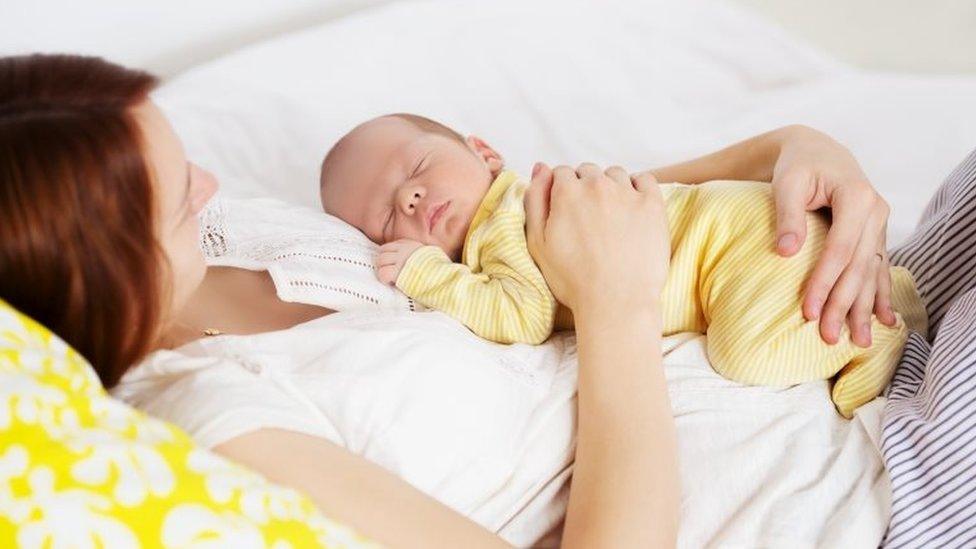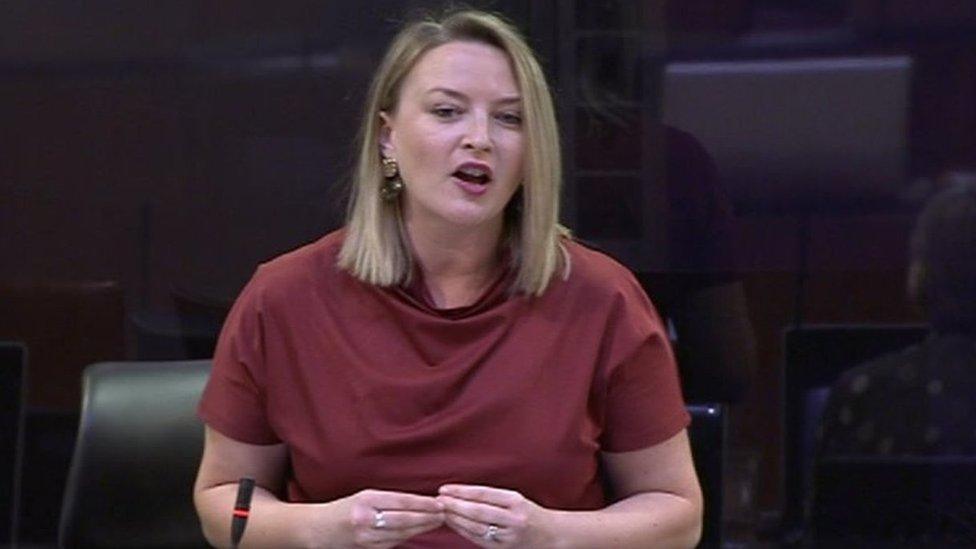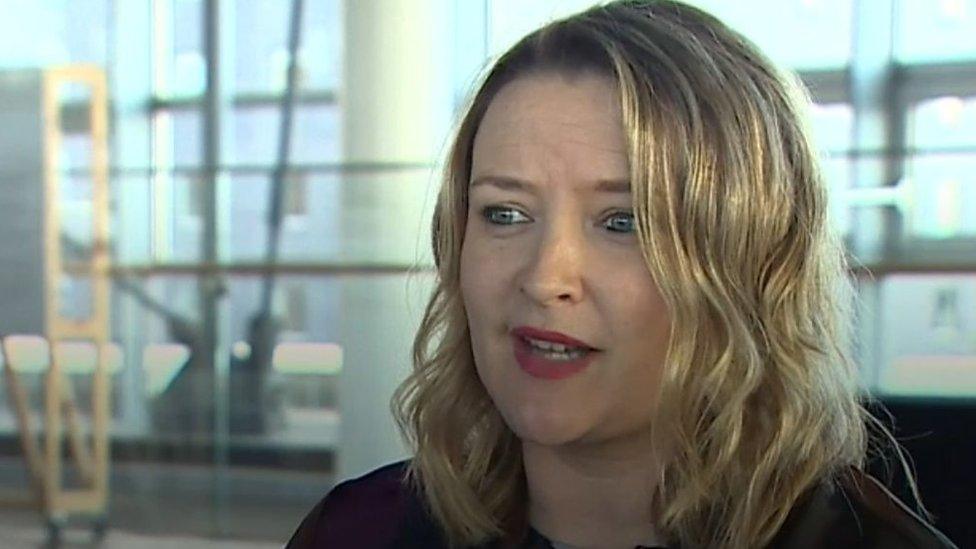Assembly considering proxy votes for AMs on parental leave
- Published

Assembly members on parental leave could be allowed to vote in the Senedd by proxy under new proposals.
New mums would be allowed to nominate others to vote for six months, while fathers will be given two weeks.
Plaid AM Bethan Sayed, who is pregnant, said she hoped it could be in place as soon as possible.
But the Conservatives are concerned AMs could vote without hearing the arguments made in debates.
Presiding officer Elin Jones has asked members for their views on the plans, which will be considered by senior politicians on the assembly business committee when they meet on Tuesday.
Proxy voting for long-term illness and other caring responsibilities is expected to be considered at a later date.
The House of Commons has run a pilot scheme for the last year, after a row about informal arrangements known as pairing.
That is where an MP in an opposing party agrees to stay away if a member cannot vote, effectively cancelling both of the MPs' votes out.
Arrangements also exist in Australia and New Zealand's parliaments.
Under the proposals a biological mother of a baby, the primary or single adopter, or the primary or single carer in a surrogacy arrangement, could nominate someone to vote for six months.
Biological fathers would be entitled to two weeks, as would a partner of the person giving birth with parental responsibilities, the second adopter of a baby or child, or the secondary carer of a baby or child.
The consultation with AMs has taken place in private, in common with most business committee work, and documentation has not been published publicly.

Plaid Cymru's Bethan Sayed is going on maternity leave later this year
Bethan Sayed has previously called for a substitute to cover for elected members when on maternity leave.
The South Wales West AM called for the process needs to be flexible so members can vote on issues they have taken a particular interest in, and no arbitrary time limit should be set.
"Depending on circumstances, some members may need a longer timeframe than others," she said.
She said remote votes should be considered "when it's appropriate".
"I hope that this can be in place as soon as it's practical to do so and a clear structure set up, so that there is public confidence that when one of their elected members can't be present, that their vote can still be used," she added.
A Welsh Conservative spokesman said the assembly party group "does have concerns about the impact of changing the current system of pairing to a formal proxy voting arrangement".
"Fundamental to those concerns are that members will designate a way to vote without participating in debates and are therefore unable to change their minds based on the strength of arguments made by other AMs," he said.
"The current pairing system also enables members to be absent for other reasons such as loss of childcare arrangements or if they need to care for a relative or family member, the new proposed system does not allow proxy voting in those situations."
- Published24 October 2019

- Published29 January 2019
